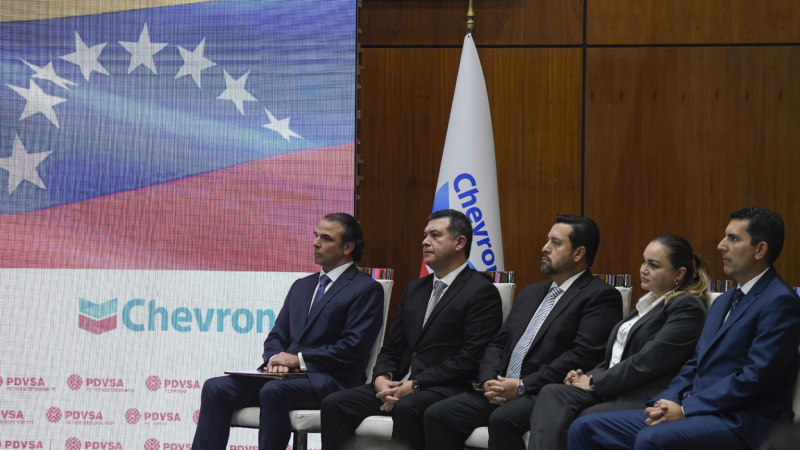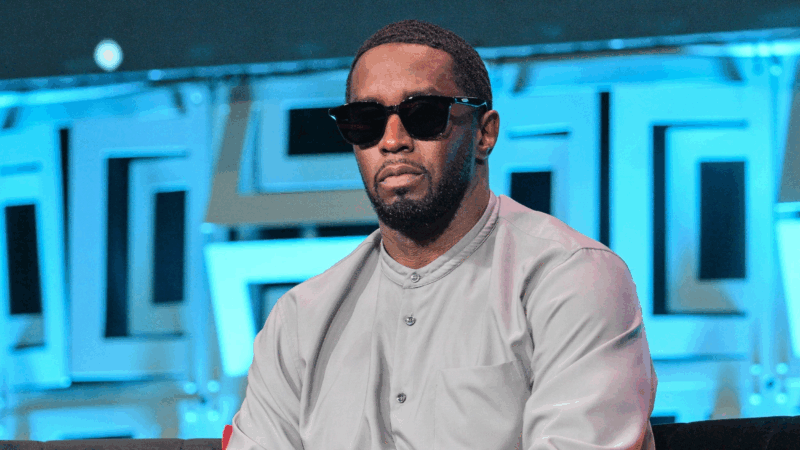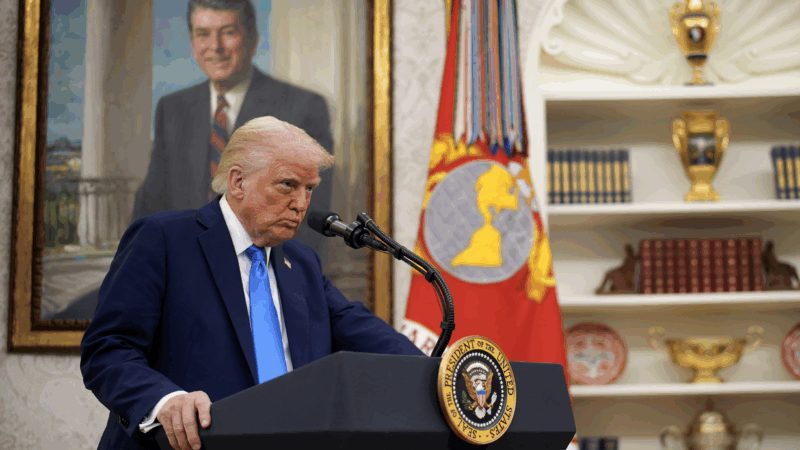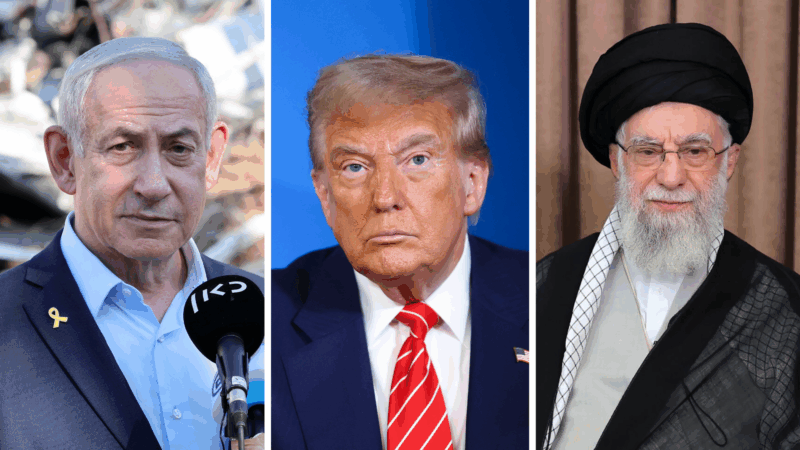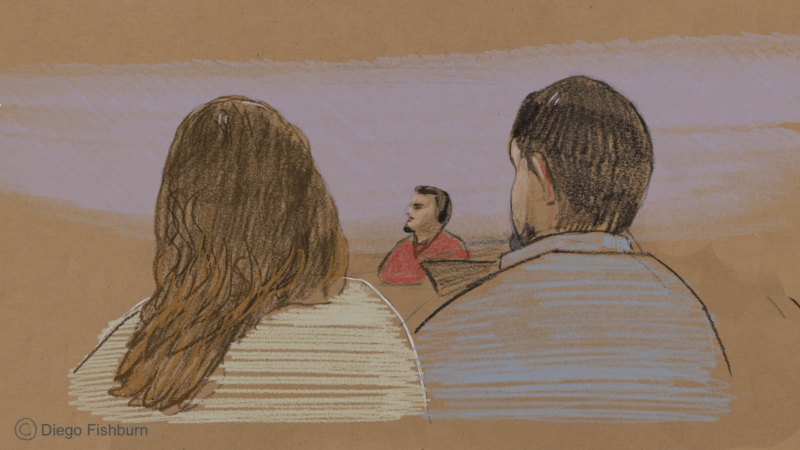Trump cuts financial lifeline for Venezuela by ending permit to export oil to U.S.
CARACAS, Venezuela — A permit issued by the United States government allowing energy giant Chevron Corp. to pump and export Venezuelan oil will be terminated this week, President Donald Trump announced Wednesday, ending what became a financial lifeline for the South American country.
Trump’s announcement in his Truth Social network accused the government of President Nicolás Maduro of not meeting democratic conditions for last year’s July presidential election as well as of not moving fast enough to transport back to Venezuela immigrants set for deportation.
“We are hereby reversing the concessions that Crooked Joe Biden gave to Nicolás Maduro, of Venezuela, on the oil transaction agreement,” Trump wrote.
Trump’s post did not specifically mention California-based Chevron nor the permit, formally known as a general license, that exempts the company from economic sanctions and allows it to export and sale Venezuelan oil in the U.S. But it is the only Venezuela-related license whose issuance and renewal information match the dates Trump did mention in his social media post.
The administration of President Joe Biden authorized the license in 2022 after Maduro agreed to work with Venezuela’s political opposition toward a democratic election. But the election, which took place in July 2024, was neither fair nor free, and Maduro was sworn in last month for a third six-year term despite credible evidence that his opponent got more votes.
Biden’s government for months then resisted calls from Venezuela’s opposition and others to rescind the license, whose goal the U.S. initially said was “to support the restoration of democracy.” The opposition has estimated that Maduro’s government has received about $4 billion through the permit, which was set to be renewed Saturday.
Over time, the license has become responsible for roughly a quarter of Venezuela’s oil production.
“We are aware of today’s announcement and are considering its implications,” Chevron spokesman Bill Turenne said in a statement. “Chevron conducts its business in Venezuela in compliance with all laws and regulations, including the sanctions framework provided by U.S. government.”
Venezuela sits atop the world’s largest proven oil reserves and once used them to power Latin America’s strongest economy. But corruption, mismanagement and eventual U.S. economic sanctions saw production decline steadily.
More than 7.7 million Venezuelans have left their homeland since 2013, when the oil-dependent economy came undone and Maduro became president. Most settled in Latin America and the Caribbean, but after the pandemic, they increasingly set their sights on the U.S.
Wednesday’s announcement, which Venezuela’s Vice President Delcy Rodriguez characterized as “harmful and inexplicable,” put a quick end to what Maduro’s government had hoped would be an improved relation with the White House following the Feb. 1 visit of a Trump envoy to Caracas, the capital. Shortly after that visit, Venezuela’s government began taking back migrants deported from the U.S.
Rodriguez in a statement warned that decisions similar to Wednesday’s “drove migration from 2017 to 2021 with the widely known consequences.”
The U.S. government does not recognize Maduro as Venezuela’s president. Under Biden and then Trump, the U.S. considers retired diplomat Edmundo González the winner of the July 28 election.
Chevron, which first invested in Venezuela in the 1920s, does business in the country through joint ventures with the state-owned company Petroleos de Venezuela S.A., commonly known as PDVSA.
The joint ventures produced about 200,000 barrels of oil a day in 2019, but the following year, U.S. sanctions imposed by Trump’s first administration to try to topple Maduro forced Chevron to wind down production. When the company got the license to export oil to the U.S. in November 2022, the joint ventures quickly began producing 80,000 barrels a day, and by 2024, they topped their daily output from 2019.
The terms of the license bar Chevron from directly paying taxes or royalties to Venezuela’s government. But the company sends money to the joint ventures, which are majority-owned by PDVSA.
It is unclear exactly how Maduro’s government has used that money as it stopped publishing almost all financial data several years ago. On Wednesday, opposition leader Maria Corina Machado in a podcast interview with Trump’s son, Donald Trump Jr., accused Maduro of using the funds for “for repression, persecution and corruption.”
“This is a huge step, and it sends a clear, clear, firm message that Maduro is in huge trouble,” she said.
Defense says Combs led ‘swinger’s lifestyle,’ was not coercive
Defense lawyer Marc Agnifilo called the tumultuous relationship between Combs and singer Cassie Ventura "a great modern love story," and sought to dismantle the credibility of key witnesses.
What is birthright citizenship and what happens after the Supreme Court ruling?
Within two hours of a Supreme Court ruling that limits the ability of federal courts to impose universal injunctions, lawyers for immigrant rights groups filed a class action lawsuit on behalf of their clients.
A fourth judge has blocked a Trump executive order targeting elite law firms
The ruling, involving the firm Susman Godfrey, marks the fourth time out of four that a federal judge has permanently blocked one of Trump's executive orders seeking to punish an elite law firm.
Five academics and former diplomats on U.S. strikes, Iran and stability
What 5 academics and former diplomats told Morning Edition about the U.S. strikes on Iran and fallout with Israel.
What is a universal injunction and how did the Supreme Court limit its use?
Friday's decision stems from President Trump's executive order regarding birthright citizenship, but the Supreme Court focused on whether lower federal courts have the power to issue nationwide blocks.
Judge orders Abrego Garcia to remain in jail after his lawyers raise deportation concerns
A federal judge agreed to delay Kilmar Abrego Garcia's release after his lawyers pointed to conflicting reports from federal officials about whether he would remain in the U.S. while he awaits trial.

